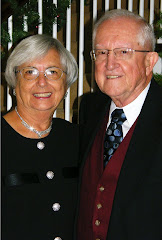
The Holy Spirit is indeed full of surprises. There is nothing more frustrating, more maddening than for a systematic theologian or scripture scholar to try and figure out an orderly, neat categorizing of the works of the Holy Spirit attested to in the New Testament writings. It just can’t be done. Almost every kind of positive action gets attributed to the Spirit, but there isn’t anything that organizes them all. Even some scripture writers evidently gave up in frustration and said: "The Spirit blows wherever it will." (Jn 3:8) It’s impossible to know when, where or how the Spirit of God will act.
Yet there is one communality that runs through all these manifestations of the Spirit: that is, the sense, the feeling that the Power of God is acting in our world beyond any control of ours. Indeed, that perception allowed the early believers to say: "It is the Spirit of God." But only in hindsight can they say: "The Spirit of God did this." We can’t organize or manage God’s Spirit. When the Spirit does occur, it reminds us of the intimate presence of God all around. And perhaps that’s the biggest gift of the Spirit.
For the last seven Sundays we have been exploring the deep meanings of the Paschal Mystery: that the Resurrection of Jesus was a new saving act of God; that Jesus now gloriously lives in the divine Mystery; that the Resurrection was a complete vindication of the life, ministry and death of Jesus; that the Paschal Mystery calls us to be suspicious of our ordinary human ways of thinking and judging; that our human lives are intertwined with the mysteries of God’s grace, forgiveness and love; and finally, the gifts of the Spirit are our constant reminders of all of the above.
The Second Vatican Council gave us so many new and exciting ways to think about the Holy Spirit in our lives. In the Constitution on the Church it says: "The Holy Spirit distributes special graces among the faithful of every rank. Whether these charisms be very remarkable or more simple....they are to be received with thanksgiving." (LG #12) That means from the power of raising Jesus from the dead to even the mute voicings of an old semi-conscious woman. The Spirit of God is indeed surprising.





















